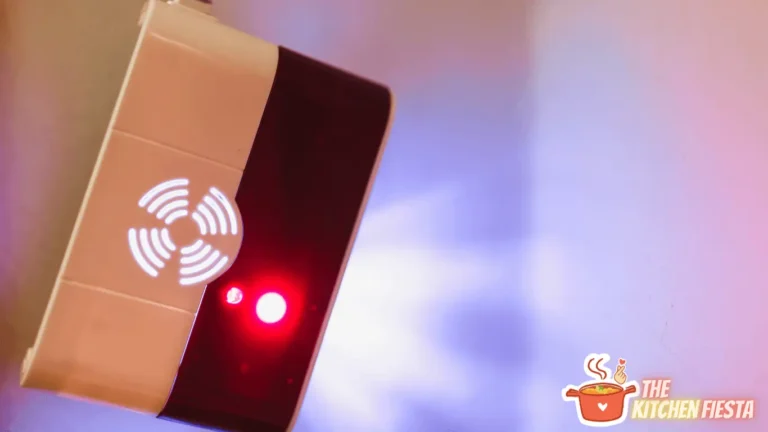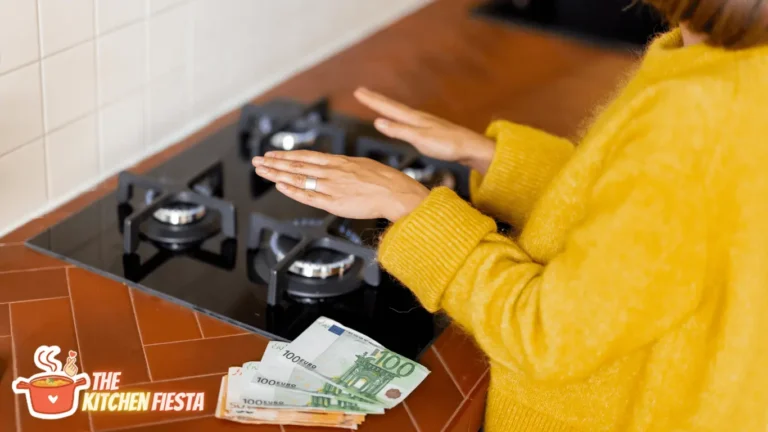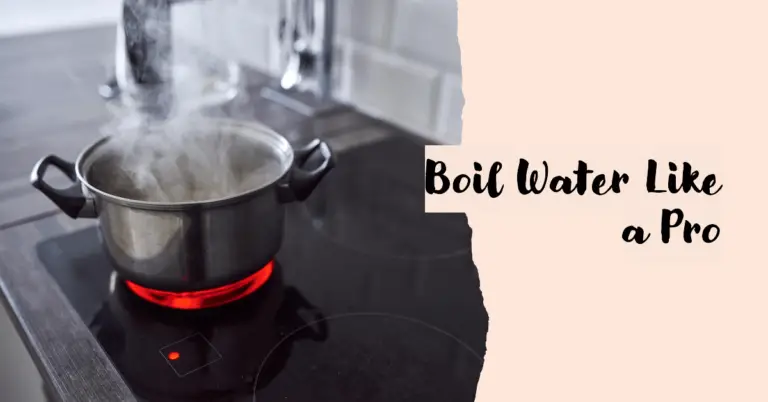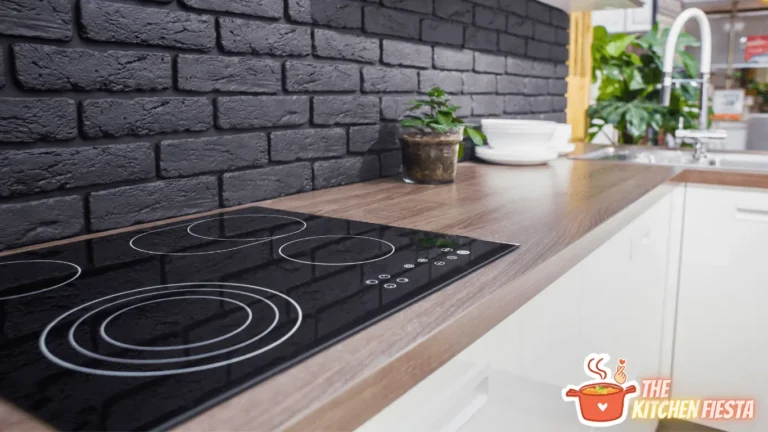Why Does My Induction Cooktop Keep Turning Off? How to Fix It
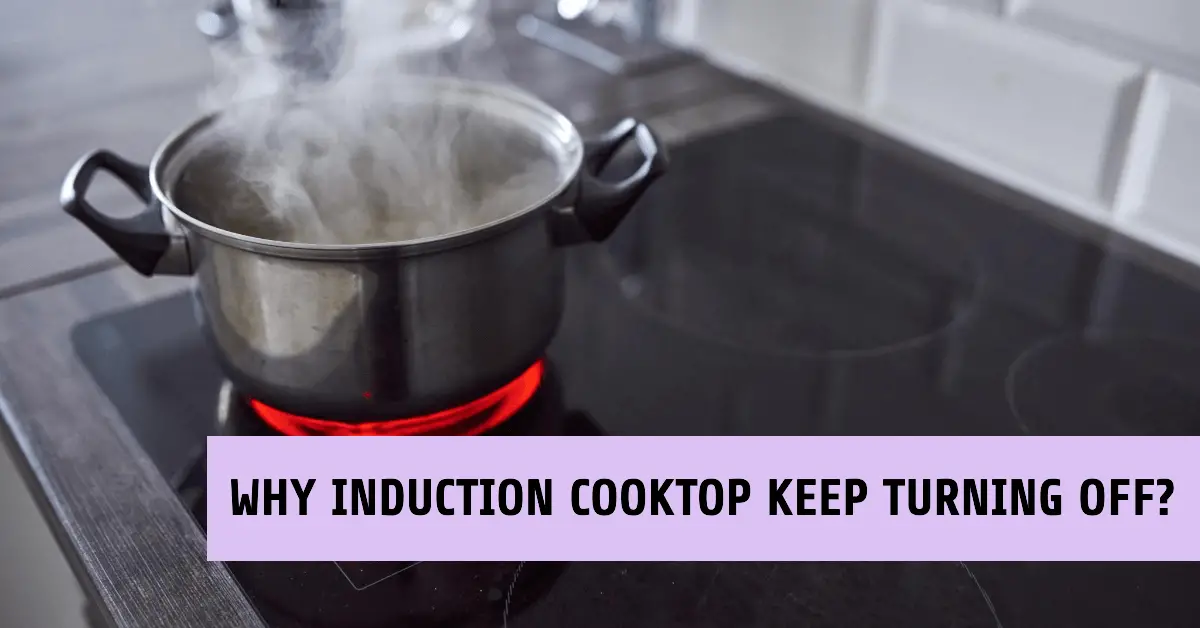
Have you noticed your induction cooktop randomly shutting off lately? Maybe it works fine for a while and then suddenly turns off when you’re in the middle of cooking dinner. This can be incredibly frustrating, especially if it keeps happening.
The good news is, there are some common reasons an induction cooktop may repeatedly turn off. Identifying the cause can help you resolve the issue or know when it’s time to call a technician.
In this comprehensive guide, we’ll discuss:
- Common faults causing induction cooktops to turn off
- Checking cookware compatibility
- Allowing the induction cooktop to cool
- Inspecting the power supply
- Troubleshooting sensors
- Control board failure
- When to call an appliance repair technician
- Tips to prevent future induction cooktop shut offs
By the end of this guide, you’ll have the knowledge to troubleshoot a cooktop that keeps shutting down and ensure it works properly for years to come.
What Causes an Induction Cooktop to Repeatedly Turn Off?
Induction cooktops work by creating an electromagnetic field that generates heat in ferromagnetic cookware. Underneath the smooth glass surface are coils that transfer energy to the pan.
This technology provides fast, energy-efficient and precise cooking. However, several issues can disrupt the induction process and cause the cooktop to turn off unexpectedly:
- Incompatible or incorrectly sized cookware – The pan must work with induction and make full contact.
- Overheating – Built-in sensors will shut off the cooktop until it cools.
- Problems with sensors – Faulty sensors can mistakenly detect issues.
- Power supply or connection problems – Loose wiring can interrupt power.
- Control board failures – The control board regulates electric functions.
Understanding the problem is the first step toward resolving your induction cooktop randomly turning off. Next we’ll explore these common issues in more detail.
Checking Cookware Compatibility with Induction Cooktops
One of the most frequent reasons an induction cooktop shuts off is incompatible or improperly sized cookware.
Induction only works when paired with ferromagnetic cookware, where the pan itself becomes heated by the magnetic field. The cooktop must be able to detect that the right cookware is in place.
Induction Cooktop Cookware Requirements
For your cookware to work on an induction cooktop, it must meet these requirements:
- Made of a ferromagnetic material that interacts with magnetic fields. Common materials include cast iron, stainless steel and enameled steel.
- Fully contacts the cooking surface. The pan bottom must lie completely flat.
- Appropriately sized for the cooking zone. Pans should match closely to the marked dimensions.
Aluminum, copper, glass and ceramic cookware will NOT work on an induction cooktop because they do not contain iron.
Tips for Using Cookware with Induction
- Use ferromagnetic pans – Look for the induction symbol on the bottom. Use a magnet to test metals.
- Avoid small or warped pans – Match the pan size to the cooking zone and ensure even contact.
- Replace old cookware – Make sure pots and lids sit flat and don’t rock.
- Buy induction-ready sets – Many cookware sets are designed for induction cooking.
Taking these steps to use compatible induction cookware can prevent those frustrating unexpected cooktop shut offs during cooking.
Allowing the Induction Cooktop Time to Cool
Another common reason an induction cooktop will turn off is overheating. These high-tech appliances have built-in sensors to monitor temperature.
Induction cooking involves generating an electromagnetic field under the glass surface. This allows rapid heating but also raises the cooktop’s internal temperature with prolonged use.
Here are some tips on allowing an overheated induction cooktop to cool:
- Avoid covering vents – Blocking airflow will cause overheating. Leave space around the cooktop.
- Limit prolonged high-heat cooking – Boiling large amounts of liquid for an extended time can overtax the induction system.
- Let the unit cool completely – Sensors may block operation until reaching a safe temperature. This may take 30 minutes or longer.
- Add cooktop ventilation – Downdraft or external blowers can help manage heat buildup.
- Clean fan and vent areas – Built up debris can impede airflow. Use compressed air to clean vents.
Minor overheating is expected with induction appliances. Allowing adequate cooling periods will allow the cooktop to reset and function normally.
Checking Electrical Power Supply and Connections
If your induction cooktop works initially but then shuts off after a period of use, there may be an issue with the power supply and connections.
Here are some steps to inspect the electrical supply:
- Try another outlet – Plug the cooktop into a different kitchen outlet to test if it stays on. This will confirm if the issue is internal or with the electrical supply.
- Reset the breaker – Locate the circuit breaker controlling the induction cooktop and switch it OFF and then ON. This may clear any overload triggered shut off.
- Check connections – Unplug the unit and inspect the cord, plug, and terminals for signs of loose, frayed or damaged wires. Contact an electrician immediately if wiring issues are found.
- Contact an electrician – For persistent power loss or flickering, contact a technician to diagnose and resolve electrical supply problems.
Loose wiring that interrupts consistent power flow could definitely cause an induction unit to repeatedly turn off. Addressing power and connection issues can restore normal performance.
Troubleshooting Sensor Problems with Induction Cooktops
The latest induction cooktops contain smart sensors to monitor the cooking performance. These include:
- Temperature sensors to prevent overheating
- Pan detection sensors to confirm compatible cookware is in place
- Error sensors that identify faults or abnormal operation
It’s possible for these high-tech sensors to malfunction and prematurely shut down the cooktop. Here are some troubleshooting tips:
- Unplug and reset – Cycle the power by unplugging for 30 minutes to reset the cooktop sensors.
- Clean sensors – Gently clean any surface sensors according to manufacturer directions. Avoid abrasives.
- Check error codes – Many brands will flash sensor error codes on the control panel that can be diagnosed.
- Hire an appliance technician – If sensors are defective, a technician can replace them and restore functionality.
Resetting sensors and looking for error codes are good first steps. For ongoing sensor-related shutdowns, professional repair may be required.
Control Board Failure in Induction Cooktops
The control board is the “brain” of an induction cooktop that regulates all the electrical functions. It monitors sensors, controls the magnetic coils, and provides the user interface.
Like any electronic component, control boards can fail over time. This can manifest as random shutting down of the cooktop burners while cooking.
Warning signs of a faulty induction control board include:
*Repeated cooktop shut offs *Flashing error codes on the display *Burners not heating properly *Unresponsive touch controls
Here are some tips for troubleshooting a failed control board:
- Try unplugging the induction cooktop for 30 minutes to reset the control board. This may temporarily resolve glitches.
- Check for loose or damaged connections to the control board.
- Inspect for signs of overheated or burnt components on the control board. Discolored or melted areas indicate failure.
- The control board may need professional replacement if it is damaged or continues malfunctioning. A technician can safely install a new one.
Control board failures tend to worsen over time. At the first signs of problems, it’s smart to proactively replace the control board to avoid ongoing issues.
When to Call an Appliance Repair Technician?
While the induction troubleshooting steps discussed can resolve many common issues, it’s sometimes necessary to call in a professional appliance repair technician.
Here are some situations when you should request technical assistance:
- You’ve tried the troubleshooting tips with no improvement.
- The induction cooktop repeatedly works for awhile and then shuts down.
- The electronic control panel displays error codes you cannot diagnose.
- There are sparking, burning smells or other electrical issues observed.
- The internal cooktop sensors require replacement.
- The control board needs to be replaced or repaired.
- You lack the skills or confidence to safely diagnose and repair induction appliance issues.
Induction repair technicians have specialized tools and expertise to properly diagnose and fix your induction cooktop. Don’t hesitate to call for assistance when needed – it can prevent further damage.
Tips to Prevent Future Induction Cooktop Shut Offs
Beyond resolving any current induction cooktop problems, there are also some maintenance steps you can take to prevent future shut offs:
- Always use the manufacturer recommended size and type of magnetic induction cookware. This ensures full sensor detection.
- Allow the cooktop to completely cool periodically during extended cooking tasks. Don’t block vents or airflow.
- Avoid placing hot cookware onto the control panel areas. This can damage electronic components.
- Keep the induction unit fully clean by wiping with mild detergent and cleaning vents.
- For older induction cooktop models, consider proactive control board replacement.
- Have technicians inspect sensors and connections during routine appliance check-ups.
- Isolate the induction cooktop on its own circuit breaker. This prevents power overload from other appliances.
Taking preventive measures maximizes the longevity and performance of your induction cooktop. Then you can relax and enjoy all the benefits of cooking with induction!
Key Takeaways on Induction Cooktops Repeatedly Turning Off
To summarize, the main reasons an induction cooktop may repeatedly shut off during cooking include:
- Using incompatible cookware that the sensors cannot properly detect
- Allowing the induction unit to overheat without adequate cool down periods
- Electrical connection issues that disrupt power to the cooktop
- Malfunctioning temperature, pan detection or error sensors
- Eventual failure of the internal electronic control board
By checking your cookware, allowing cooling periods, inspecting connections, troubleshooting sensors, and proactively replacing older control boards, you can get to the bottom of your induction cooktop issues.
Calling on the skills of an appliance repair technician provides professional assistance when needed. They have the tools and expertise to properly diagnose and resolve shut off problems.
With the induction troubleshooting advice in this guide, you can get your high-tech cooktop working perfectly again. Enjoy fast, energy-efficient and consistent cooking performance for many meals to come!


